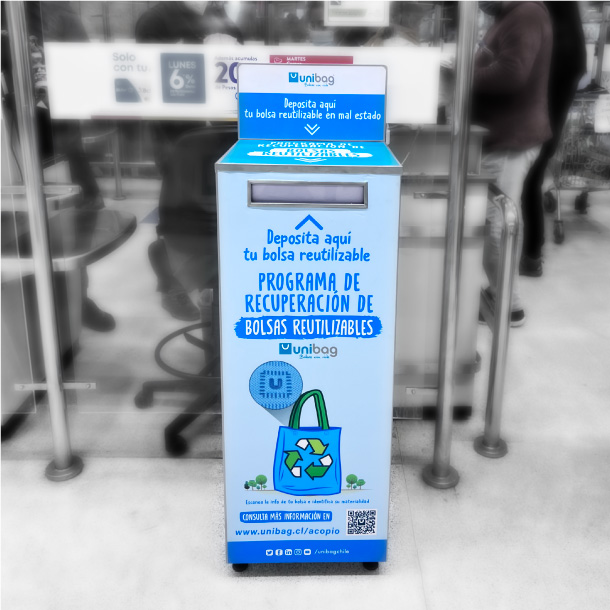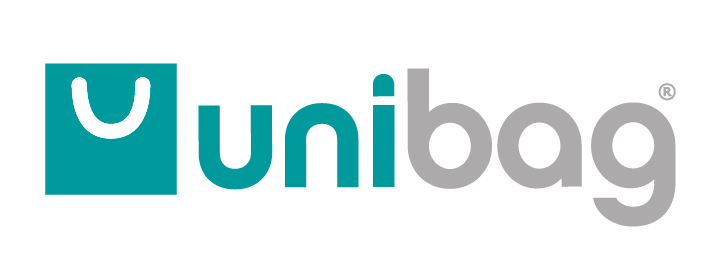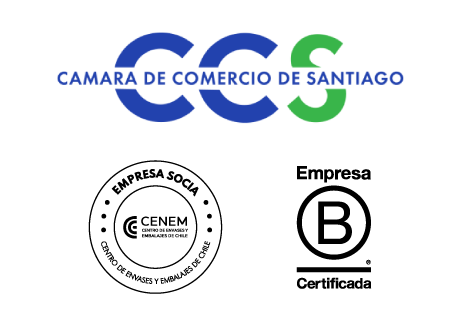Bag Recovery Program

How can we prevent a reusable bag from becoming waste?
Reusable bags have helped reduce plastic pollution. It is no longer as common to find disposable bags in our environment as it was in the past. One reusable bag replaces the use of approx. 200 disposable bags, when reused. But what happens at the end of these 200 uses when the reusable bags reach the end of their useful life? And what happens when people accumulate more bags in their homes than they can actually reuse? Today it is common to have a bag full of reusable bags in every home. These questions are becoming a concern for companies and NGOs working in environmental care.
Currently on the market, following Law 21,100, which bans bags made from petroleum-derived polymers, there are paper bags, cotton bags and bags made from biopolymers of vegetable origin, such as PLA (polylactic acid). The use of these bags is promoted for their recyclability and compostability characteristics, but this does not occur in most cases. Once their life cycle is over, these bags are often discarded in the regular garbage, where their degradation occurs in landfills due to lack of information and access to proper management.
In order to work on this problem, it is necessary to advance in environmental education and develop recovery points, but above all, we need a business commitment regarding the products manufactured and marketed. Reusable bags do not qualify as disposable packaging to be recovered for the purposes of the REP law, so other alternatives for their recovery should be considered.
Unibag, as a manufacturer of reusable bags, has been pushing for three years its initiative to recover its bags so that they do not end up in the trash and is the only company in the industry that has this type of initiative. This project, promoted by Eliana Moreno, Innovation and Sustainability Manager since 2019, has borne fruit, with the installation of 5 recovery points between the RM and V region, plus strategic alliances for the removal of bags at home in 8 communes of Santiago.
This bag recovery initiative consists of recovering used bags that have reached the end of their useful life, classifying them according to their materiality and then sending them to a recycling or industrial composting plant to be transformed into compost in less than 5 months.
To date, 9 kg of reusable bags have been recovered, of which 35% were PLA bags that were destined for industrial composting, 60% were plastic bags that were sent to our strategic allies to be transformed into polypropylene pellets and finally 5% were paper bags, which were added to the monthly shipment of waste for recycling that Unibag carries out. In this way, our program prevented reusable bags from becoming trash.
“As a company that produces bags, we are concerned about generating alliances with waste recovery companies to manage the recovered bags and transform them into new products according to their materiality. The challenge is to increase the number of recovery points and alliances, but above all to be more emphatic in environmental education, to reinforce key concepts such as reuse, eco-design, life cycle and recycling as the last option. As a certified Company B, we must go one step further to reduce or neutralize the negative externalities of the products we sell,” says Eliana Moreno.
Therefore, if you have a commercial establishment in any part of the country or a home recycling company and you are interested in setting up your business as a collection point for reusable bags, please contact us at [email protected]. In this way you will be contributing to a cleaner environment, provide a better service to your customers and attract more customers to your store.
This post is also available in: Spanish




Leave a Reply
Want to join the discussion?Feel free to contribute!